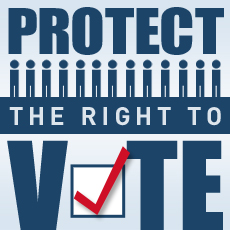
There were eight states this year that passed some version of a law requiring photo identification for all voters. South Carolina was one of them, but hopefully not for long.
The Department of Justice on Friday blocked South Carolina’s law, which it said would have disproportionately affected thousands of minority voters.
Because South Carolina has a sorry history of discrimination, it is required under the federal Voting Rights Act to have any changes in its voting laws approved by the Department of Justice or a federal court in Washington.
The law requires voters to have a government-issued photo ID. If that sounds simple enough to you, it’s not for tens of thousands of minorities, students, elderly and low-income residents who are registered to vote, but for various legitimate reasons, do not have a government-issued ID. Right now, all they need to cast a ballot is a voter registration card and a signature at their polling station.
“This law shows why the Voting Rights Act is still needed to combat voter suppression,” said Katie O’Connor, a staff attorney with the ACLU Voting Rights Project. “This is the first time in 17 years the government has stepped in to block a voter ID law. It was the right move at the right time.”
The ACLU and a coalition of civil rights groups had asked the Justice Department to block the law on the grounds it would have placed a greater burden on minority residents than white residents.
When the DOJ ruling came down Friday, South Carolina Gov. Nikki Haley squawked about a “terribly clearly political decision” that infringed on the state’s 10th Amendment rights. She’s vowed a court appeal. What Haley didn’t say were how laws like this one trample on residents’ 14th Amendment right to equal protection under the law, and the 24th Amendment prohibition against a poll tax, for starters.
How can Haley suggest that her state’s rights, which she purports are being violated, are more important than the right of every eligible resident to vote? There can be many answers — some more cynical than others — especially during an election season. But fundamental freedoms should trump calculated political moves every time. The Voting Rights Act and, by extension, the Justice Department, have seen to that.
Learn more about voter suppression: Sign up for breaking news alerts, follow us on Twitter, and like us on Facebook.


